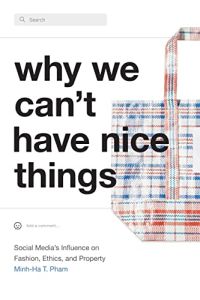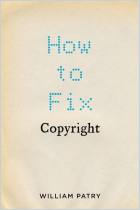Acesse a sua conta getAbstract para obter o resumo!

Acesse a sua conta getAbstract para obter o resumo!
Minh-Ha Pham
Why We Can't Have Nice Things
Social Media’s Influence on Fashion, Ethics, and Property
Duke University School of Law, 2022
Sobre o que é?
Social media play a major role in determining who has the right to be a copycat in the fashion world.
Recommendation
Luxury fashion brands often rely on social media to perpetuate their market power. Media studies professor Minh-Ha T. Pham illustrates how the fashion world’s lack of clarity about intellectual property rights enables luxury brands to create their own online rules, which reinforce their right to copy others’ work. Yet the same rules make luxury brands a moral authority against less-powerful fashion brands that also want to copy others. Pham shows how social media users either help mask – or expose – brands that are prone to theft. Her academic but illuminating treatise concedes that making the fashion industry ethical requires addressing imbalances of creative ownership amid the social media scrum.
Summary
About the Author
Minh-Ha T. Pham is an associate professor in the Graduate Program of Media Studies at the Pratt Institute in Brooklyn, New York.
















Comment on this summary